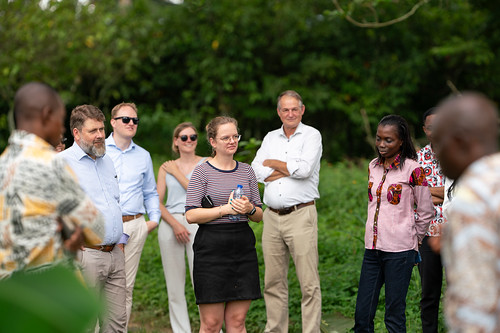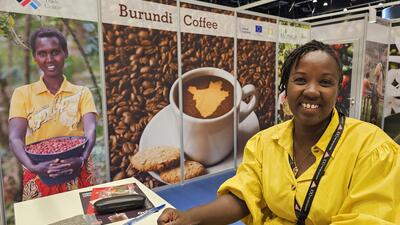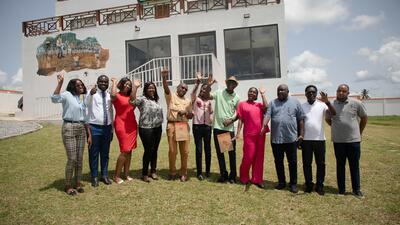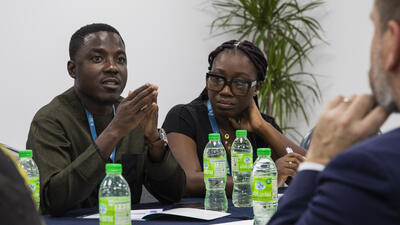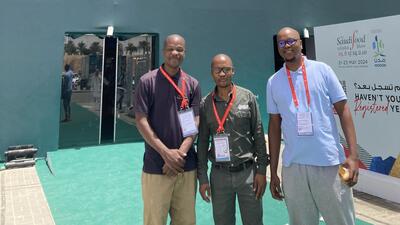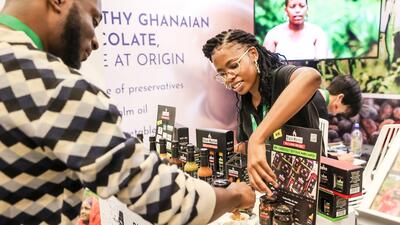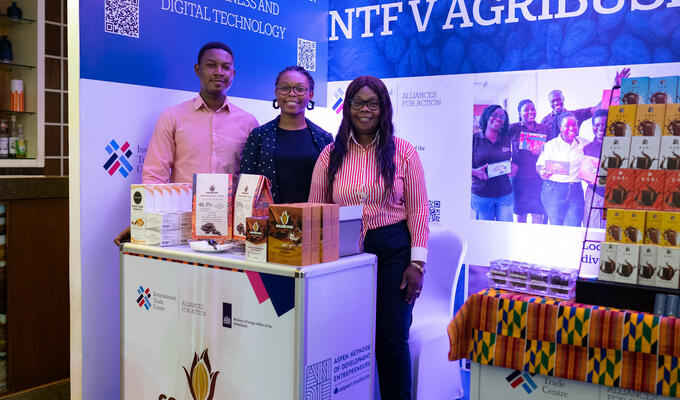
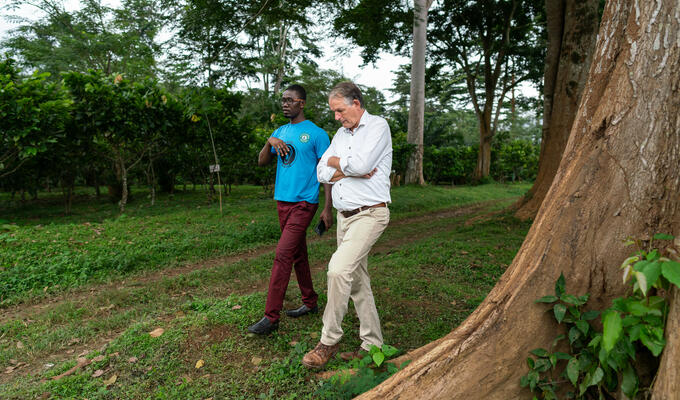
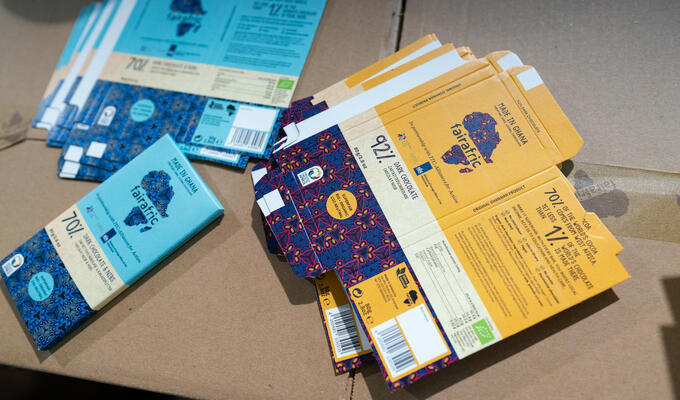
Transforming Ghana’s agribusiness sector through tech
Ghana is working on innovative ways to transform its cocoa production and exports, aiming to create jobs and make exports more profitable.
Cocoa accounts for about a quarter of total export receipts. Yet, most cocoa farmers are smallholders who lack skills, resources and the ability to uptake digital services.
Change of this magnitude demands that every cog in the wheel is lined up to switch gears at the same time. NTF V, a Netherlands-government funded initiative implemented through the International Trade Centre (ITC), is working with Ghana to make that happen.
‘We are not looking at band aid solutions here,’ said Tim Spaans, Senior Policy Officer in the Sustainable Economic Development Department at the Ministry of Foreign Affairs of the Netherlands.
‘We are looking at addressing the root causes of the obstacles to growth, contributing towards enabling environments for farmers and tech companies in the agriculture and digital spaces and building the bridge between them,’ Spaans said. ‘This will open up investment opportunities that will lead to long-term change.’
Connecting tech entrepreneurs and farmers
With the Alliances for Action (A4A) approach, NTF V works with Ghanian cocoa farmers to respond to the changing demands of international markets. They’re also teaming up with tech entrepreneurs to create digital services that support farmers.
A4A works to transform food systems and advance the Sustainable Development Goals, the blueprint for global peace and prosperity. The approach uses partnerships with agri-businesses to cultivate ethical, climate-smart, sustainable value chains.
‘These challenges call for change, and that is why we exist. We want to ensure there is constant innovation in the agri-tech space,’ said Kamil Nabong, Portfolio Manager for Kosmos Innovation Centre (KIC), an agri-tech accelerator and tech hub in Ghana.
NTF V works with tech hubs like KIC through ITC’s FastTrackTech methodology to assess startups’ maturity, due diligence and readiness to export. NTF V also encourages the government to pass regulations that promote investment and spur innovation.
‘When we talk about systemic change, we look at policies and regulations, and all the different elements that create a broader enabling environment,’ explained Spaans, who spent a week in Ghana with other members of the Netherlands Trust Fund V Steering Group in September.
Samuel Dentu, Deputy Chief Executive Officer of the Ghana Export Promotion Authority (GEPA) is working with NTF V on a corporate strategy to ensure GEPA can drive the nation’s 10-year export plan.
‘The importance and relevance of the strategy cannot be over emphasised. This will be the “bible” for Ghana’s export promotion authority and every stakeholder within the trade ecosystem. Once we launch it, we are certain it will create the systemic change we want,’ Dentu said.
These challenges require time, patience and a multifaceted approach.
Technology can help farmers comply with new international rules
With chocolate, for example, the European Union wants to trace cocoa back to individual farms and to prevent deforestation. Ghanaian cocoa farmers must offer proof of compliance for their sourcing and planting practices.
Technology can help meet this change, said Nabong.
‘When you look at the Ghanaian ecosystem, you’ll notice that many tech hubs are working in silos. NTF V has tried to bring them all together. This is crucial, because as an ecosystem we must collaborate and leverage each other’s strengths,’ Nabong added.
Dentu said that GEPA wants to capitalize on young entrepreneurs interested in artisanal chocolate-making, so that more chocolate is made in-country. Fostering that ambition, NTF V has taken young producers to international chocolate fairs and is discussing their needs with the Ghana Cocoa Board.








